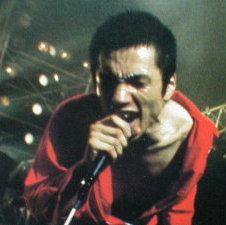
例えば外国の人が、神社とお寺は同じものだと思っていたり、日本と中国は同じ国だと思っていたり・・と文化が違うともちろん物事をとらえる視点が大きく違います。
今日はそんなお話です。
日本語では往々にして一つの言葉で語られるものでも英語表現では違う、そういう言葉を紹介します。
legとfoot
過去のブログ(Hand-Hand-Fingers-Thumb)でも取り上げましたが、まずは「足」
日本語では「足」とつけねからつま先までざっくり表現することもありますが、英語では常に leg 脚(もものつけねから足首まで)とfoot (足首から下の部分)この二つの単語を分けて使います。
類似例として、「青い」をあげておきましょう。
「青い」「blue」日本語では「緑色」を「青い」ということがありますね。
日本人が「青い」という時に、外国人は「え、それ緑・・」と思って驚きます。
僕がまだ日本語をほとんど知らなかった頃、赤信号が変わった時に隣にいた妻が「青になったよ。」と言った時には、鮮やかな緑色のライトの下にいて、その場では何も聞けませんでした。
そんな僕も日本に6年以上住み、今や青信号は青く見えます。
英語ではgreen light といいます。
For various reasons, there are many situations where there is only one word in Japanese, but more than one word in English. In a previous blog, I noted how the Japanese word “ashi” can mean “leg” or “foot” in English.
he following are some similar situations to be aware of:
Aoi– Aoi is generally translated as “blue” in Japanese, but there are many situations where people say “aoi” when native English speakers would say “green.” I remember being confused the first time my wife said “aoi desu” when the traffic light changed from red.
Another situation where native English speakers would use “green” is with unripe bananas.
ワニには2つの英語alligatorsとcrocodilesがあります
さて、次は「わに」です。
日本語は一つですが、英語は2種類あります。一つ目はアリゲーター。
僕は少年時代ルイジアナ州の湿原地帯の川や湖でよく泳いで遊びました。
時には、アリゲーターと並んで泳いだこともあったかもしれません。
アリゲーターは小さな犬を食べることもあるなどといわれることもありますがこちらが何もしなければ人を襲うということはありません。
反して、クロコダイル。
この邪悪な響き。
クロコダイルは実際人を襲い、毎年多くの死人が出ています。
アリゲーターはアメリカ南東部に生息し、クロコダイルはアフリカ、アジア、オーストラリアに生息しています。
Wani– I grew up swimming in the bayous, rivers and lakes of Louisiana as a boy. Sometimes swimming alongside me would be an alligator. Though alligators have been known to eat the occasional small dog, they will not attack people if they are left alone.
On the other hand, crocodiles kill hundreds of people every year. Alligators mainly live in the southeast part of the United States, and crocodiles live throughout Africa, Asia and Australia.
どぶねずみを英語で表現すると
次は、「ねずみ」です。
ねずみと聞くとまず頭に浮かぶのが僕が一番好きなパンクバンド、ブルーハーツのリンダリンダのイントロ部分です。
どぶねずみ/ みたいに/ うつくしく/ なりたい
初めてこの意味を理解したときにしびれました。
心が震えました。
英語では「ねずみ」というと「マウス(mouse)」か「ラット(rat)」になります。
マウスは小さくて可愛いのに対し、ラットは巨大で醜いのです。
Beauty-「美」とは何か、目に見えるものが大事なのか、違う、写真には写らない見えないもの、心の目でしか見えないものが真実で美しいんだとリスナーに冒頭から伝えようとしてくるボーカル、ヒロトの感性と哲学に深い尊敬の念を抱きました。
これぞ、パンクオブパンク(パンクの中のパンク)だと。
このイントロのベストな英訳は
「Like a rat (ratのように) I want to be beautiful.」
となると思います。
Nezumi– It`s a tough call, but I think the Blue Hearts are my favorite punk band. I really like the intro to Linda Linda: どぶねずみ / みたいに / うつくしくなりたい.
In English, nezumi can mean mouse or rat. A mouse is small and cute, while a rat is big and ugly. Here I think Hiroto is trying to redefine the idea of beauty, so I think the best translation would probably be “like a rat, I want to be beautiful.”
アツくなってしまいました。次です。
wheat(小麦) barley(大麦) rye(ライ麦)
「麦」
知ってます。お米が日本では一番大事な穀物だということを。
だから、wheat(小麦) barley(大麦) rye(ライ麦)をひとくくりにして「麦」でまとめちゃう気持ちもわかります。
(訳者は昔、ブライアンに「麦焼酎の「麦」は何麦か」と聞かれ
「なんでそんなこと気にするの?どーだっていいじゃん。麦は麦だよ。」
と答え幻滅された過去があります。)
小麦粉が世界中でパンの原料として使われていることはご存知ですね。
他の食品にもたくさん使われています。多くのアメリカ人同様、僕も朝食にはwheatiesという小麦のシリアルを食べて育ちました。(今はチャルメラの時もあります)
Barley 「大麦」はビールの主原料として知られています。
動物性食品に使われることもあります。Rye 「ライ麦」はウィスキーの原料として、そしてライ麦パンの原料として使われます。
ライ麦パンは小麦のパンより色が濃く、強い風味があります。
有名な小説「ライ麦畑でつかまえて」の原題は「The Catcher in the Rye.」です。
Mugi– Rice is by far the most important grain in Japan, so it isn`t too surprising that three separate grains (wheat, barley and rye) are lumped together into the term “mugi.” The flour from wheat is what is used to make most of the bread of the world. It is used to make many other foods as well. Like many Americans, I grew up eating “Wheaties,” a cereal, for breakfast every morning. Barley is one of the main ingredients of beer, and it is also used for animal feed. Rye can be used to make whiskey or rye bread, which is darker and stronger than wheat bread. Oh, and the English title of the novel ライ麦畑でつかまえて is The Catcher in the Rye.
知らない英単語に出会ったら
最後になりますがわからない単語や表現があった時に辞書を引きますね。
そこで得た情報はもちろん有益ですが、必ずしも常に自分の知りたかった答えと合致するとは限りません。
言葉は生きているのだと実感する瞬間です。
懐かしい思い出話を一つ。
日本に住み始めて間もないころ、人々が口々に「お大事に」と言ってるのを聞いて、意味を知らなかった僕は辞書を引きました。
そこには「Take care」と書かれていました。
英語では「Takecare 」は「good bye」や「see you later」同じように別れ際に気軽にかける言葉です。
そう、それからながーーい間、僕は会う人会う人に「お大事に」と言い続けました。
妻が「妊婦さんや、病気の人に体を大切にしてくださいという時に使うんですよ。」と教えてくれるまでは・・・。
間違いが人を育てます。
みなさんもたくさん間違って、英語を学んでくださいね!
今日はここまで。
Keep in mind that when you look up a word in a dictionary that sometimes the word can have multiple meanings or subtle nuances. I remember that when I first moved to Japan I heard many people say “お大事に.” Not knowing what it meant, I looked it up in my dictionary and the English entry said “take care.” In English, “take care” has the same meaning as “goodbye” or “see you later.” So for a long period of time I went about telling everyone “お大事に” whenever we parted. Thankfully, my wife explained to me that you only use that term with sick or pregnant people before I embarrassed myself any further.
See you soon! Take Care!